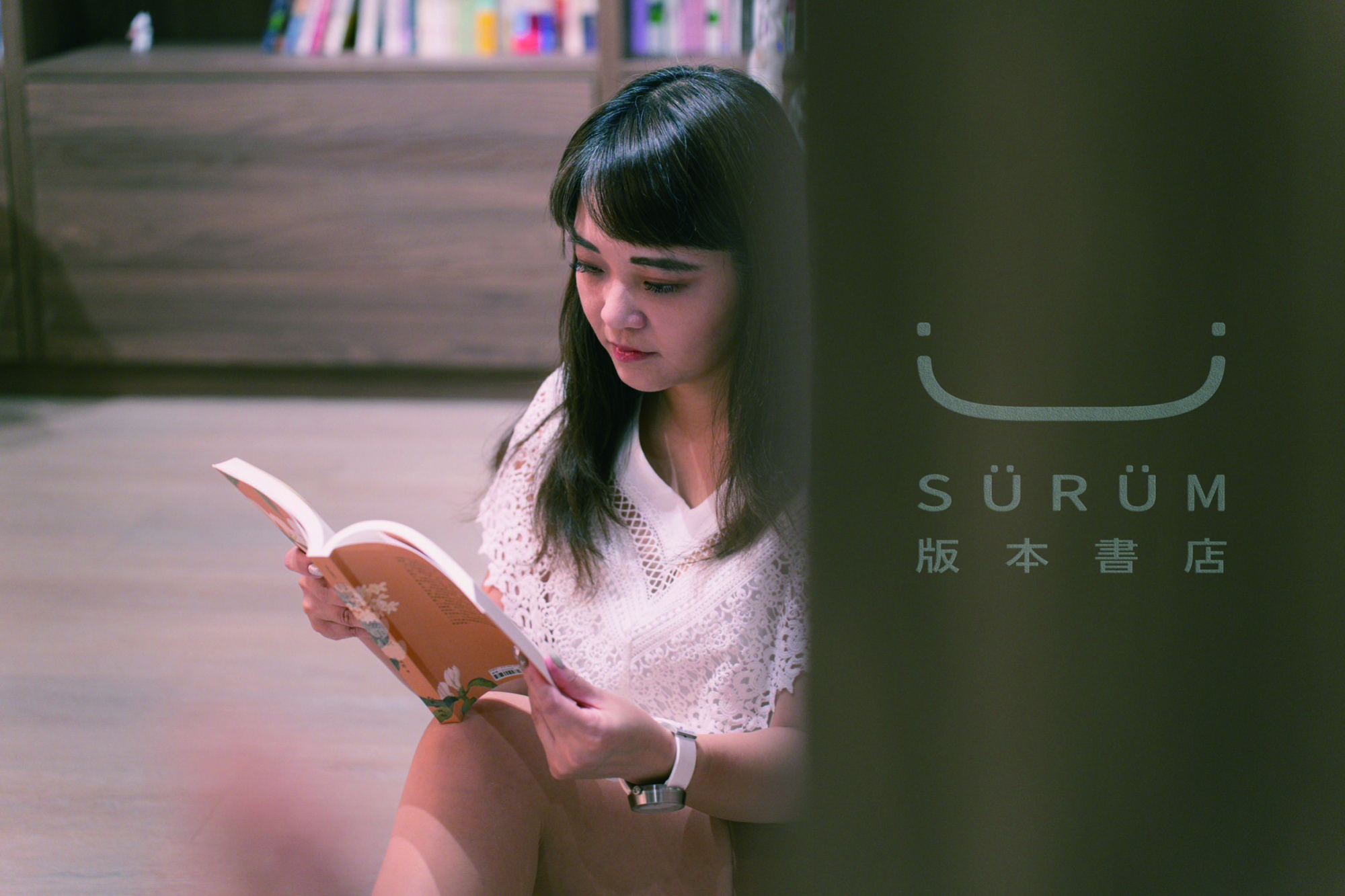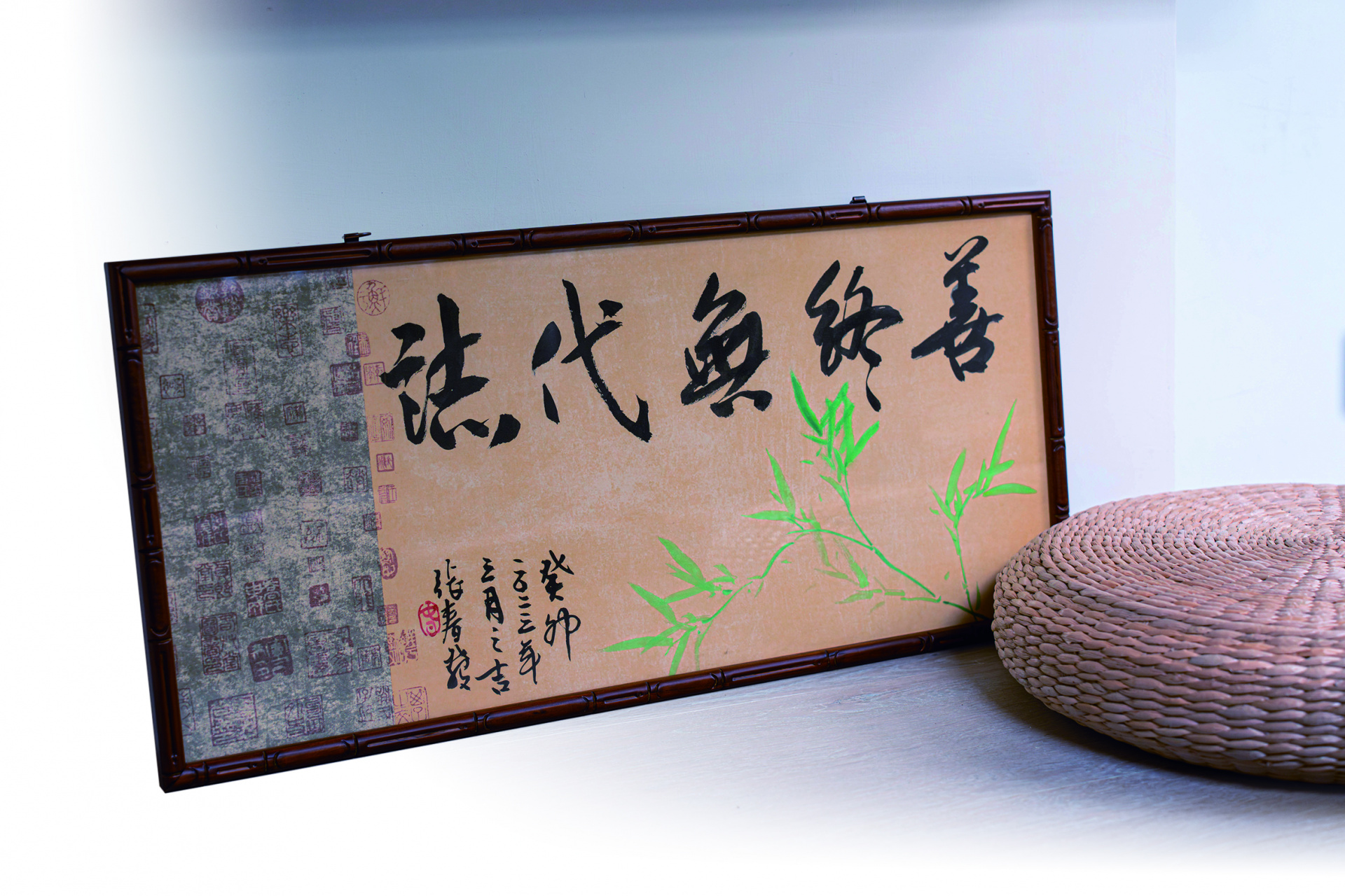After completing her medical studies, Dr. Wan-Ting Hsieh fulfilled her ambition by entering the medical field. At the onset of her professional journey, she ventured into the realm of hospice care. Presently, she holds a prestigious position as the Director of the Palliative Medicine Department at Chi Mei Medical Center. Yet, deep within herself, she realizes that there is still missing a crucial piece in her perception of hospice care.
Today, with the hospice unit running smoothly and a cohesive team in place, Dr. Hsieh has finally found the time to seek out that missing puzzle piece. More precisely, she's rediscovering it and fitting it back into place. This vital piece takes the form of the SüRüM Bookstore, set to launch in October 2023 as a community space fostering discussions about literature and life.
Bypassing the Hospital to Live Well in the Community
"Live well, live meaningfully. Within books lie many versions of life, and the life obstacles ahead represent the crucial steps into a new dance." This message is the invitation by Dr. Hsieh forthcoming SüRüM Bookstore's opening; it reflects her heartfelt desire for everyone—a gentle aspiration cultivated through years dedicated to hospice care.
The origin of the bookstore stemmed from a sense of dissatisfaction with the present state. It was about four or five years ago when the Patient Right to Autonomy Act (PRAA) was just passed, and while everyone was energized by another stride in hospice care, Dr. Hsieh remained composed and carefully examined the inadequacies and implementation dilemmas within this development.
"At that time, I had a sense that according to the regulations, we could only conduct Advance Care Planning at hospital outpatient clinics. However, these consultations were often geared toward individuals who weren't yet ill," Dr. Hsieh says. She has been a constant presence at the forefront and has witnessed the most authentic front-line scenarios. She continues, "Many individuals felt the need to sign these documents for themselves, but found it uncomfortable that they had to visit the hospital in order to schedule an appointment."
Immersed in hospice care, Dr. Hsieh is undeniably committed. She frequently engages in community outreach to advocate for hospice care and PRAA, conducting workshops and health education. However, she finds herself repeatedly questioning whether this inadvertently confines hospice and PRAA further within medical institutions: "Aren't hospice and PRAA fundamentally community-oriented and universally applicable concepts?"

As a doctor and writer, who is self-deprecatingly embracing the multifaceted life, Dr. Hsieh pondered how to liberate the concepts of hospice and self-planning within the PRAA from the confines of hospitals and introduce them to a broader audience. After all, whether one is planning for their health, life, or estate, decisions aren't made with a single lecture or consultation; there's a wealth of intricate details to delve into, including one's own emotions.
"When advocating for hospice or the PRAA, our goal was always to strive for the best. However, this isn't something that people can grasp quickly. It's not just about understanding what the regulations state, but more importantly, comprehending one's inner thoughts," she explains. Dr. Hsieh firmly believes that this understanding is crucial to returning to the core values of hospice—embracing the entirety of the individual, the family, and the entire journey.
Opening Up the Sky to Create a Community Hub
When Dr. Hsieh found herself unsure how to find the missing piece and materialize her longing, a colleague from her long-standing hospice team, after hearing her thoughts, cleared the fog, saying, ""Director, I know what you're aiming for! What you're after is a hub for activities."
That simple phrase struck her like an epiphany, and Dr. Hsieh couldn't contain her excitement, exclaiming, "Yes! That's the idea. I want to initiate a 'social movement' for compassionate living, mindful existence, and dignified passing."
Expanding on her thoughts, Dr. Hsieh emphasized how, especially in cases like the Patient Right to Autonomy Act (PRAA), people need time for self-awareness, self-acceptance, and understanding how to safeguard their rights under the law before they can plan ahead. These processes require nurturing and support, but within the healthcare system, time is often the most limited and pressing resource.
"Not only time and pace, but also space and environment are essential," expresses Dr. Hsieh, who anticipates a place where people could feel at ease that is much different from the formality of a medical consultation, and perhaps could even internalize through small, engaging activities.
"In essence, it's about having the time and space to assist everyone in planning for a fulfilling life, a peaceful passing, and a meaningful existence," summarizes Dr. Hsieh. Besides being a physician, she's an author and an avid reader. In the realm of hospice care, books often become a medium of connection with patients. With thoughtful arrangements, simple words on a page or even an illustrated book with straightforward sentences can wield unexpected power in providing companionship.
In an instant, her world expanded. She no longer confined herself solely as a hospice physician, but instead, Dr. Hsieh embraced her background and expertise, stepping into the community to establish a bookstore. Here, within this realm, she engages with people to contemplate how to live each day to the fullest, saying: "We all desire comfort in our bodies, joy in our hearts, harmony in our relationships, and peace in our spirits. Hospice shouldn't just be associated with death."
Originating from Marketplace Stalls, Book of Final Wishes Leads to Life Planning
From feeling inadequate within to clearing the fog and forming the idea for the bookstore, Director Hsieh spent a full two years on this journey. Even so, this was just the beginning.
Returning to the practical aspect, she couldn't help but worry that her inner thoughts might ultimately be nothing more than a romantic notion that wouldn't truly resonate with people. Hence, before establishing the bookstore, she needed validation, and her method was to participate in various marketplace stalls.
"Even if people don't buy the book or I find it too challenging, I can always step back," Hsieh reflects. Yet, beneath her smiling demeanor, there remained a bundle of tension that held her captive.
When she set up her stall, she designed the Book of Final Wishes and conducted a series of workshops titled A Good End Is Just Fine. She elaborated that the Chinese character [終, i.e., sounds like zhong] – meaning end, finish – represents the concept of peace and tranquility; yet this character has many homophones. As one example, she substituted it with [鍾] – meaning to concentrate on one’s affections – in hopes for individuals to better appreciate themselves. And another example, she used [忠] – meaning loyal, faithful, devoted – to encourage people to be honest and loyal to their inner feelings. The Book of Final Wishes is really more about whether one is living well or not, and less about thoughts related to death.

The Book of Final Wishes comes with four postcards: A Fine Body, A Fine Mind, A Fine Relationship, and A Fine Finance. Each postcard offers distinct cues to guide the writing process, which Director Hsieh suggests: "This is essentially a translation of medical language. By following the postcards' guidance and jotting down details about your closest relatives or designated healthcare proxies, along with plans regarding your spiritual, relational, and financial aspects, these can be taken to an Advance Care Planning clinic in the future, serving as an invaluable reference."
Initially, the booth didn't attract much attention and faced skepticism, with few people showing up. Despite these doubts and challenges, Director Hsieh found her confidence. One participant excitedly remarked after attending an event, "I've been searching for this kind of activity!"
She explained that she frequently engages in similar gatherings, spurred by her grandmother's passing, which made her ponder about life and death. "We didn't even know her clothing preferences because no one had ever asked her, and we were unsure how to approach the topic."
Transforming the Bookstore into a Public Haven and a Launching Pad for Hospice Care
Throughout her involvement in hospice, Director Hsieh had encountered similar sentiments before, but these discussions were primarily conducted within clinical settings and hospital wards, facilitated by professional guidance. Hence, when individuals expressed: “Participating in related activities only guides me on how to live and die well, but they don’t provide specific guidance for when I need to sign an advance decision. I never imagined having a professional doctor sit down with me here to discuss these matters!” Her confidence surged as she realized that SüRüM Bookstore would undoubtedly serve as a community haven and another pivotal starting point for hospice care.
Lectures might help individuals develop the right mindset, but they don’t provide the practical steps needed to reach that mindset. SüRüM Bookstore will serve as that pathway.
"That person's affirmation was significant, indicating that the role of physicians remains crucial in life and health planning. It's meaningful for doctors to step out of their traditional roles and engage with the community," Director Hsieh expresses with delight, announcing SüRüM Bookstore's opening in October, and promising an ambiance amongst the scent of books, tea, desserts, and occasional events.
She anticipates and understands that SüRüM Bookstore isn't about evoking or capitalizing on emotional sentiments; instead, it's about engaging in romantic and intriguing activities together. Her hope is that “in the future, when individuals embark on life planning, the time spent at SüRüM Bookstore will offer them the most substantial support.”
